Boston’s role in the Civil War and abolition movement is a captivating chapter of American history. This self-guided audio tour offers a chance to dive into the city’s pivotal contributions, from the influential voices of abolitionists to the heroic actions of its regiments. Tracing the footsteps of the past, the tour promises an enriching experience, uncovering the untold stories that shaped the nation’s struggle for freedom and equality. Whether you’re a history buff or simply curious, this immersive journey through Boston’s storied past is sure to leave a lasting impression.
Key Points

- Explore Faneuil Hall, the historic "Cradle of Liberty" where influential abolitionists like Frederick Douglass spoke and civil discourse shaped the fight for freedom.
- Discover the role of the 54th Massachusetts Volunteer Infantry, the first all-Black regiment in the Civil War, and their heroic actions that challenged racial biases.
- Visit Beacon Hill, the heart of Boston’s abolitionist movement, and learn about the African Meeting House and the city’s resistance to slavery.
- Reflect on the Soldiers and Sailors Monument, which honors the sacrifices of Civil War soldiers and highlights Boston’s contributions to the abolition movement.
- Enjoy the stories of Boston’s abolitionist history through a self-guided audio tour, uncovering the courage and determination of activists and ordinary citizens.
Faneuil Hall and the Cradle of Liberty
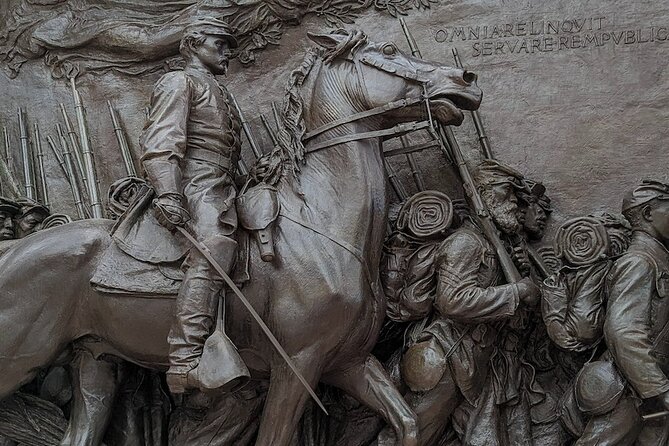
Faneuil Hall, also known as the "Cradle of Liberty," is a historic marketplace and meeting hall located in the heart of Boston.
It has played a significant role in the city’s history, serving as a hub for political debate, civic engagement, and the abolition movement.
Visitors can explore the hall’s rich history and learn about the influential figures who spoke here, including Samuel Adams, James Otis, and Frederick Douglass.
The hall’s iconic architecture and lively atmosphere make it a must-visit destination for those interested in Boston’s revolutionary past and its pivotal role in the fight for freedom and equality.
Loving the local insights? Here are more guided experiences we recommend in Boston
The Siege of Boston and Emancipation
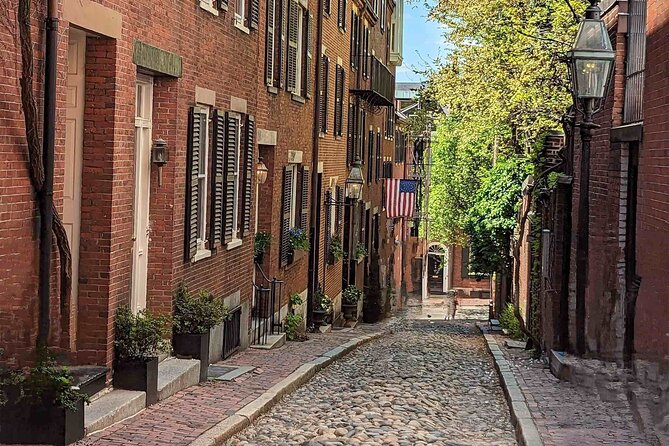
The Siege of Boston, a pivotal moment in the American Revolutionary War, unfolded as the conflict between the colonies and the British Empire intensified.
As the British army occupied Boston, George Washington’s Continental Army surrounded the city, leading to a standoff that lasted nearly a year.
During this time, the abolitionist movement gained momentum, with many Black Americans seizing the opportunity to fight for their freedom.
The siege ultimately ended with the British evacuating Boston, a significant victory for the patriots.
This moment marked a turning point in the war, as the colonies continued their march towards independence and the abolition of slavery.
The 54th Massachusetts Volunteer Infantry
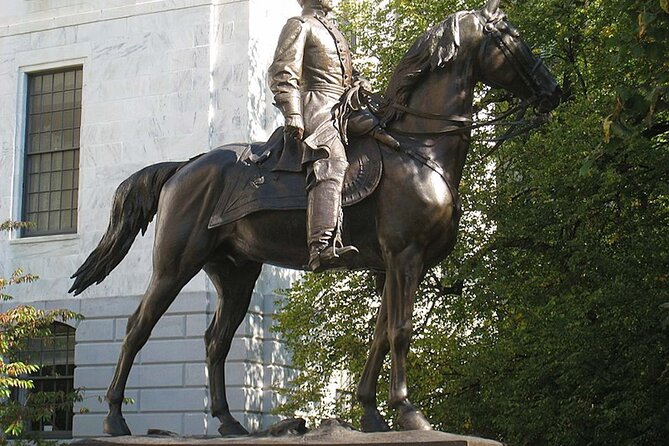
Following the decisive victory at the Siege of Boston, the 54th Massachusetts Volunteer Infantry rose to prominence as one of the first all-Black regiments to fight in the Civil War.
Established in 1863, the 54th was led by Colonel Robert Gould Shaw and fought bravely in several key battles, including the famous assault on Fort Wagner in Charleston, South Carolina.
Though the 54th suffered heavy casualties, their heroic actions helped to dispel the myth of Black inferiority and paved the way for the further enlistment of African-American troops.
The 54th’s legacy remains an enduring symbol of Black military service and the fight for equality during the Civil War.
Beacon Hill and the Abolitionist Movement
Beacon Hill was the heart of Boston’s abolitionist movement during the 19th century.
This historic neighborhood was home to prominent abolitionists like William Lloyd Garrison, whose newspaper The Liberator played a crucial role in the anti-slavery crusade.
The African Meeting House, located on Beacon Hill, served as a hub for the black community and hosted speeches by influential figures like Frederick Douglass.
The area’s cobblestone streets and row houses provided a backdrop for the protests, rallies, and civil disobedience that defined the abolitionist struggle.
Today, visitors can explore this rich history by following the self-guided audio tour, which delves into the stories and significance of Beacon Hill’s role in the fight to end slavery.
The Soldiers and Sailors Monument
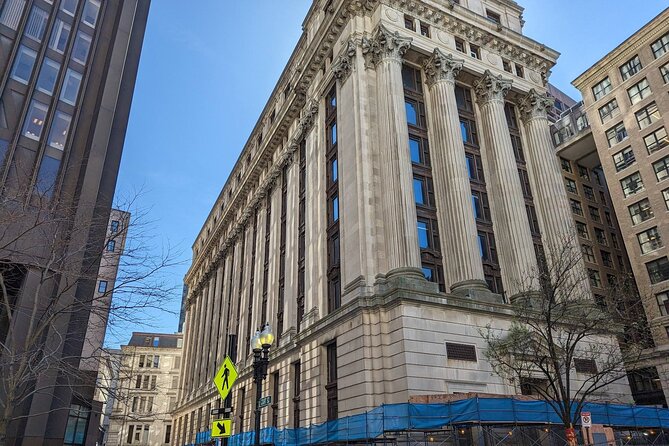
Erected in 1877, the Soldiers and Sailors Monument stands tall as a tribute to the brave men from Boston who fought and sacrificed during the Civil War.
Located at the intersection of Tremont and Park Streets, the monument features a bronze statue of a soldier atop a granite pedestal.
Inscriptions on the monument’s four sides honor the memory of those who served, including the famous 54th Massachusetts Infantry Regiment, the first Black military unit from the North.
Visitors can learn more about Boston’s crucial role in the abolition movement and the city’s contributions to the Union cause during the war.
The monument serves as a powerful reminder of the sacrifices made to preserve the nation and end slavery.
Here are more great tours and experiences we've reviewed in Boston
- Self Guided Classic Freedom Trail Location Aware (GPS) Walking Audio Tour
- Boston Harborwalk and Tea Party Self-Guided Audio Walking Tour
- Audio Guided Tour of Old North Church
- Boston Freedom Trail Self-Guided Tour With Audio Narration & Map
- Boston’s Freedom Trail: A Self-Guided Audio Tour
- Ultimate Boston Audio Tour Bundle
Commemorating the Civil War in Boston
Boston’s rich history of abolitionism and its pivotal role in the Civil War are commemorated through a array of monuments and historic sites throughout the city.
The Soldiers and Sailors Monument, located at the end of the self-guided audio tour, stands as a tribute to those who fought and died in the war.
Other notable landmarks include the Boston Massacre Site, the Theodore Parker Unitarian Church, and the Museum of African American History.
These sites offer visitors a deeper understanding of Boston’s central part in the abolition movement and the sacrifices made by its citizens during the conflict that defined America’s history.
Exploring Boston’s Abolitionist History
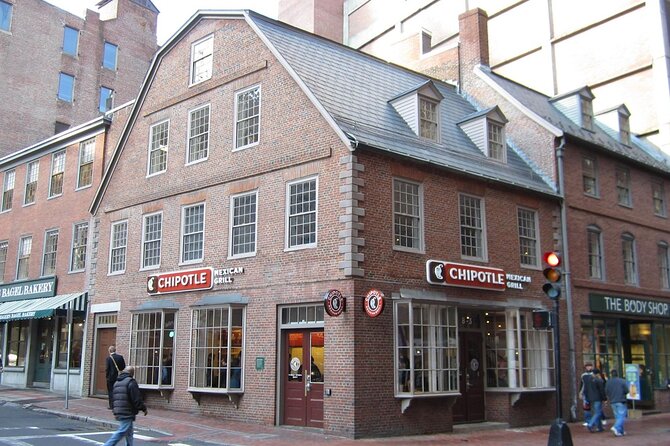
Tracing Boston’s rich abolitionist legacy, the self-guided audio tour immerses visitors in the city’s pivotal role in the fight to end slavery.
Along the route, listeners uncover the stories of prominent activists like William Lloyd Garrison, who founded the abolitionist newspaper The Liberator.
They’ll explore the historic African Meeting House, a hub of anti-slavery organizing, and visit the site of the 1854 Anthony Burns Fugitive Slave Case, a key event that galvanized the abolitionist movement.
The tour highlights Boston’s central place in the broader struggle for emancipation, shedding light on the courage and conviction of those who risked everything to advance the cause of freedom.
Taking in the City’s Storied Past
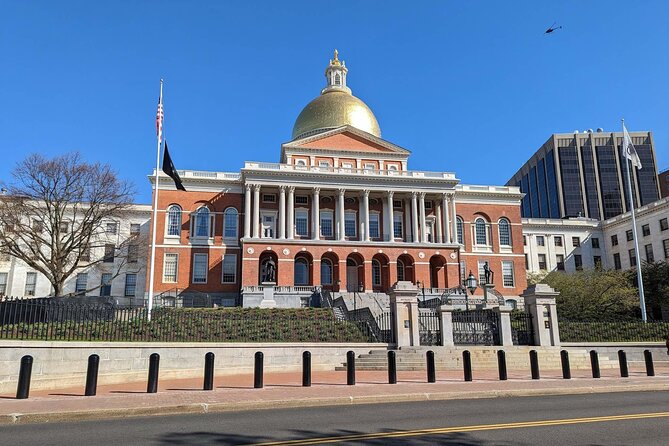
Visitors embarking on the Boston Civil War and Abolition Movement audio tour are immersed in the city’s storied past, exploring the pivotal role it played in the fight to end slavery.
Along the route, they uncover the stories of abolitionists and ordinary citizens who stood up against the injustice of slavery, from the famous speech of William Lloyd Garrison to the courageous acts of the Underground Railroad.
The tour brings history to life, allowing participants to walk in the footsteps of those who fought tirelessly for freedom and equality.
Through this immersive experience, travelers gain a deeper appreciation for Boston’s enduring legacy in the abolitionist movement.
Recap
The "Boston Civil War and Abolition Movement: A Self-Guided Audio Tour" offers a rich and immersive exploration of the city’s pivotal role in the fight for freedom and equality. From the historic African Meeting House to the Soldiers and Sailors Monument, the tour illuminates Boston’s powerful contributions to the abolition movement, deepening visitors’ understanding of its enduring legacy in the struggle for emancipation.
More Guided Tours in Boston
- Private 4-Hour Walking Tour in Boston With Official Tour Guide
- Lexington & Concord Private Guided Tour From Boston, Groups 5-6
- Brass and Bronze: Audio Guide to Bostons Art and Monuments
- Small-Group Guided Walking Tour of Boston With Boat Cruise
- Boston Scavenger Hunt and Highlights Self-Guided Tour
- Private Street Food Tour in Boston With Local Guide
More Tours in Boston
More Tour Reviews in Boston
- Boston Mothers Day Premier Dinner Cruise
- Private Full Day Tour to Coastal Maine From Boston With Hotel Pick-Up
- Transfer in Private Vehicle From Boston Downtown to Boston Airport (Bos)
- Flynn Cruise Port Boston to Boston Hotels – Arrival Private Transfer
- Private Round Trip: BOSton Airport BOS to BOSton by Business or Luxury Vehicle
- Boston to Newport Mansions Private Day Trip
Not for you? Here's more things to do in Boston we have recnetly reviewed
- 5 Best Shopping Tours In Boston
- 9 Best Dining Experiences In Boston
- 5 Best 2 Day Tours In Boston
- 3 Best Lunch Experiences In Boston
- 5 Best Full-Day Tours In Boston
- 7 Best Photography Experiences In Boston
- 7 Best Dinner Tours In Boston
- 25 Best Cruises And Boat Tours In Boston
- 24 Best Food Tours In Boston
- The Boston Bash Scavenger Hunt
- Dino Safari – Boston: Discounted Any Day Flex Admission
- Boston City Scavenger Hunt by Wacky Walks
